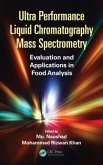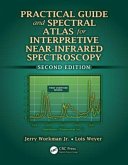Next-Generation Sequencing
Standard Operating Procedures and Applications
Herausgeber: Suravajhala, Prashanth N; Bizzaro, Jeff W
Next-Generation Sequencing
Standard Operating Procedures and Applications
Herausgeber: Suravajhala, Prashanth N; Bizzaro, Jeff W
- Gebundenes Buch
- Merkliste
- Auf die Merkliste
- Bewerten Bewerten
- Teilen
- Produkt teilen
- Produkterinnerung
- Produkterinnerung
This reference book compiles standard operating procedures, protocols, and applications of Next-Generation Sequencing (NGS). It discusses genomic testing applications through NGS and protocols for cataloging variants of uncertain significance.
Andere Kunden interessierten sich auch für
![Molecular Networking Molecular Networking]() Caroline DesgrangesMolecular Networking138,99 €
Caroline DesgrangesMolecular Networking138,99 €![The Dynamics of Tumor Microenvironment and Therapeutic Targets The Dynamics of Tumor Microenvironment and Therapeutic Targets]() The Dynamics of Tumor Microenvironment and Therapeutic Targets142,99 €
The Dynamics of Tumor Microenvironment and Therapeutic Targets142,99 €![Biopharmaceutical Informatics Biopharmaceutical Informatics]() Biopharmaceutical Informatics177,99 €
Biopharmaceutical Informatics177,99 €![Advances in Chromatography, Volume 9 Advances in Chromatography, Volume 9]() J.C. Giddings / R.A. KellerAdvances in Chromatography, Volume 9268,99 €
J.C. Giddings / R.A. KellerAdvances in Chromatography, Volume 9268,99 €![Ultra Performance Liquid Chromatography Mass Spectrometry Ultra Performance Liquid Chromatography Mass Spectrometry]() Ultra Performance Liquid Chromatography Mass Spectrometry242,99 €
Ultra Performance Liquid Chromatography Mass Spectrometry242,99 €![Practical Guide and Spectral Atlas for Interpretive Near-Infrared Spectroscopy Practical Guide and Spectral Atlas for Interpretive Near-Infrared Spectroscopy]() Jerry Workman JrPractical Guide and Spectral Atlas for Interpretive Near-Infrared Spectroscopy264,99 €
Jerry Workman JrPractical Guide and Spectral Atlas for Interpretive Near-Infrared Spectroscopy264,99 €![Pharmaceutical Industry Practices on Genotoxic Impurities Pharmaceutical Industry Practices on Genotoxic Impurities]() Pharmaceutical Industry Practices on Genotoxic Impurities232,99 €
Pharmaceutical Industry Practices on Genotoxic Impurities232,99 €-
-
-
This reference book compiles standard operating procedures, protocols, and applications of Next-Generation Sequencing (NGS). It discusses genomic testing applications through NGS and protocols for cataloging variants of uncertain significance.
Produktdetails
- Produktdetails
- Verlag: CRC Press
- Seitenzahl: 298
- Erscheinungstermin: 30. Mai 2025
- Englisch
- Abmessung: 260mm x 183mm x 21mm
- Gewicht: 759g
- ISBN-13: 9781032392622
- ISBN-10: 1032392622
- Artikelnr.: 70600724
- Herstellerkennzeichnung
- Libri GmbH
- Europaallee 1
- 36244 Bad Hersfeld
- gpsr@libri.de
- Verlag: CRC Press
- Seitenzahl: 298
- Erscheinungstermin: 30. Mai 2025
- Englisch
- Abmessung: 260mm x 183mm x 21mm
- Gewicht: 759g
- ISBN-13: 9781032392622
- ISBN-10: 1032392622
- Artikelnr.: 70600724
- Herstellerkennzeichnung
- Libri GmbH
- Europaallee 1
- 36244 Bad Hersfeld
- gpsr@libri.de
Prashanth N Suravajhala is a Professor in the Systems Genomics Lab of the Department of Biosciences at Manipal University Jaipur. He has a PhD in Systems Biology from Aalborg University, Denmark. His group has benchmarked pipelines and developed methods for systems genomic integration. He is an Associate Editor of Frontiers in Genetics/Systems Biology, Bio-Protocol, Biomolecules, and BMC Medical Genomics. Jeff W Bizzaro has been involved in the field of bioinformatics for more than 25 years and has made significant contributions to the development of bioinformatics software. He is a co-founder of Bioinformatics.org, a professional network that advocates for open science and provides various resources to students and professionals.
1. Technologies, Computations and Data Analysis for Next Generation
Sequencing
2. Epigenetics: RNA-Seq, ChiP-Seq, MedIP-Seq and ATAC-Seq
3. Streamlining Next-Generation Sequencing Data Analysis with Nextflow and
nf-core Pipelines
4. Best practices for variant calling using Genome Analysis Toolkit
5. Implementation of WGCNA for identifying regulatory modules in biological
networks
6. Meta-analysis of RNA-seq and Microarray data
7. Best practices in single-cell RNA-seq data analysis
8. Integration of Spatial Transcriptomics and Single Cell RNA-Seq
9. Metagenomics Analysis Pipelines for Microbiome Studies: QIIME and Mothur
10. Standard Operating Procedure and Applications in Single-Cell
Transcriptomics
11. Benchmarking and Evaluation of de novo Assembly Tools for Prokaryotic
Long Reads from Oxford Nanopore Technologies
12. Best Practices for Reproducible of Microbial Genomics Analysis
13. Single Cell RNA-Seq Analyses in the Era of Artificial Intelligence
14. Towards single-molecule protein sequencing
15. SOPs on Effective Galaxy Workflows
16. Motif prediction using ChIP-Seq data analysis using Galaxy
17. Developing a Whole Exome Consensus Variant Calling Pipeline to Infer
Causal Pathogenic Variants
Index
Sequencing
2. Epigenetics: RNA-Seq, ChiP-Seq, MedIP-Seq and ATAC-Seq
3. Streamlining Next-Generation Sequencing Data Analysis with Nextflow and
nf-core Pipelines
4. Best practices for variant calling using Genome Analysis Toolkit
5. Implementation of WGCNA for identifying regulatory modules in biological
networks
6. Meta-analysis of RNA-seq and Microarray data
7. Best practices in single-cell RNA-seq data analysis
8. Integration of Spatial Transcriptomics and Single Cell RNA-Seq
9. Metagenomics Analysis Pipelines for Microbiome Studies: QIIME and Mothur
10. Standard Operating Procedure and Applications in Single-Cell
Transcriptomics
11. Benchmarking and Evaluation of de novo Assembly Tools for Prokaryotic
Long Reads from Oxford Nanopore Technologies
12. Best Practices for Reproducible of Microbial Genomics Analysis
13. Single Cell RNA-Seq Analyses in the Era of Artificial Intelligence
14. Towards single-molecule protein sequencing
15. SOPs on Effective Galaxy Workflows
16. Motif prediction using ChIP-Seq data analysis using Galaxy
17. Developing a Whole Exome Consensus Variant Calling Pipeline to Infer
Causal Pathogenic Variants
Index
1. Technologies, Computations and Data Analysis for Next Generation
Sequencing
2. Epigenetics: RNA-Seq, ChiP-Seq, MedIP-Seq and ATAC-Seq
3. Streamlining Next-Generation Sequencing Data Analysis with Nextflow and
nf-core Pipelines
4. Best practices for variant calling using Genome Analysis Toolkit
5. Implementation of WGCNA for identifying regulatory modules in biological
networks
6. Meta-analysis of RNA-seq and Microarray data
7. Best practices in single-cell RNA-seq data analysis
8. Integration of Spatial Transcriptomics and Single Cell RNA-Seq
9. Metagenomics Analysis Pipelines for Microbiome Studies: QIIME and Mothur
10. Standard Operating Procedure and Applications in Single-Cell
Transcriptomics
11. Benchmarking and Evaluation of de novo Assembly Tools for Prokaryotic
Long Reads from Oxford Nanopore Technologies
12. Best Practices for Reproducible of Microbial Genomics Analysis
13. Single Cell RNA-Seq Analyses in the Era of Artificial Intelligence
14. Towards single-molecule protein sequencing
15. SOPs on Effective Galaxy Workflows
16. Motif prediction using ChIP-Seq data analysis using Galaxy
17. Developing a Whole Exome Consensus Variant Calling Pipeline to Infer
Causal Pathogenic Variants
Index
Sequencing
2. Epigenetics: RNA-Seq, ChiP-Seq, MedIP-Seq and ATAC-Seq
3. Streamlining Next-Generation Sequencing Data Analysis with Nextflow and
nf-core Pipelines
4. Best practices for variant calling using Genome Analysis Toolkit
5. Implementation of WGCNA for identifying regulatory modules in biological
networks
6. Meta-analysis of RNA-seq and Microarray data
7. Best practices in single-cell RNA-seq data analysis
8. Integration of Spatial Transcriptomics and Single Cell RNA-Seq
9. Metagenomics Analysis Pipelines for Microbiome Studies: QIIME and Mothur
10. Standard Operating Procedure and Applications in Single-Cell
Transcriptomics
11. Benchmarking and Evaluation of de novo Assembly Tools for Prokaryotic
Long Reads from Oxford Nanopore Technologies
12. Best Practices for Reproducible of Microbial Genomics Analysis
13. Single Cell RNA-Seq Analyses in the Era of Artificial Intelligence
14. Towards single-molecule protein sequencing
15. SOPs on Effective Galaxy Workflows
16. Motif prediction using ChIP-Seq data analysis using Galaxy
17. Developing a Whole Exome Consensus Variant Calling Pipeline to Infer
Causal Pathogenic Variants
Index








